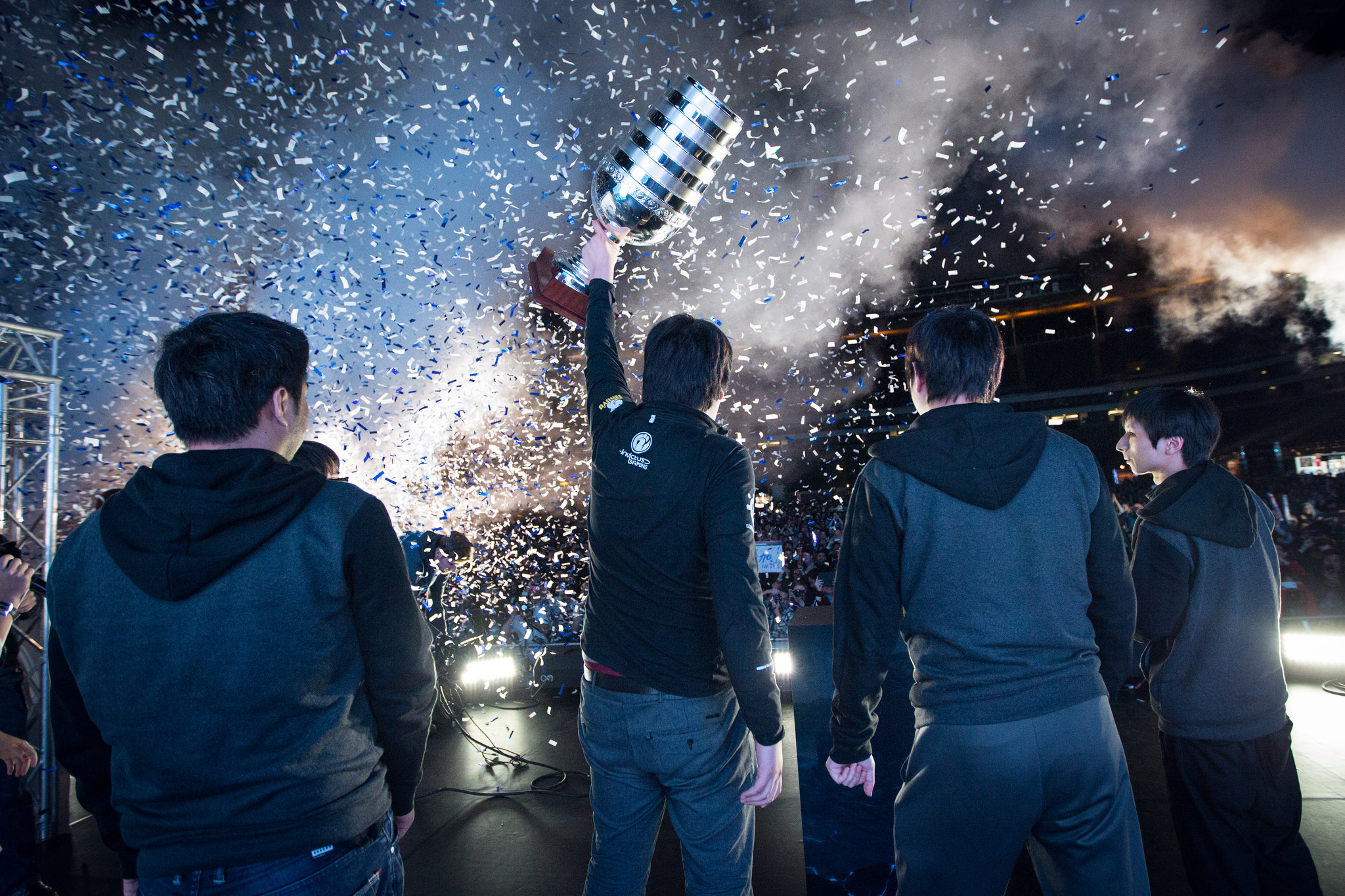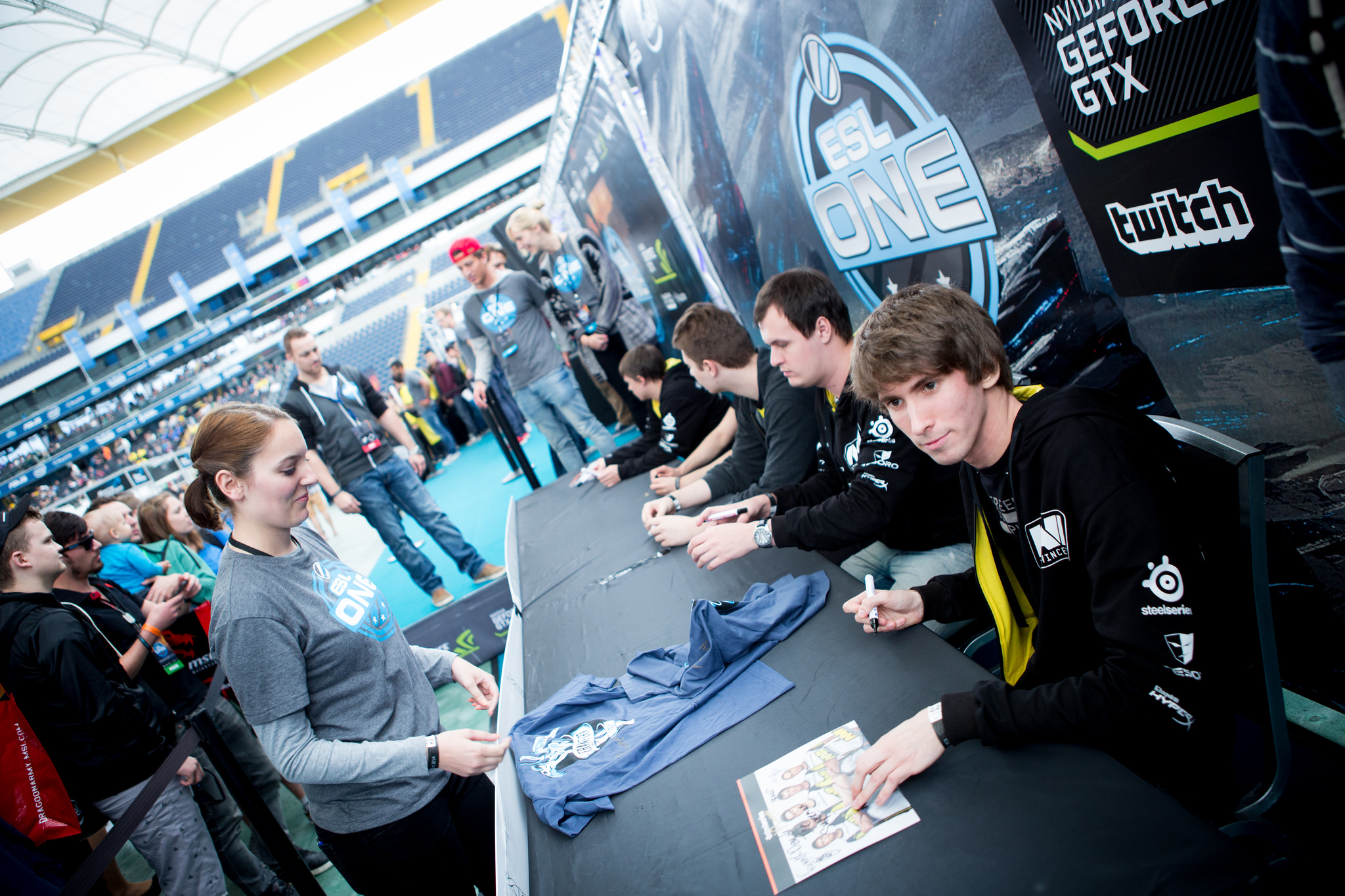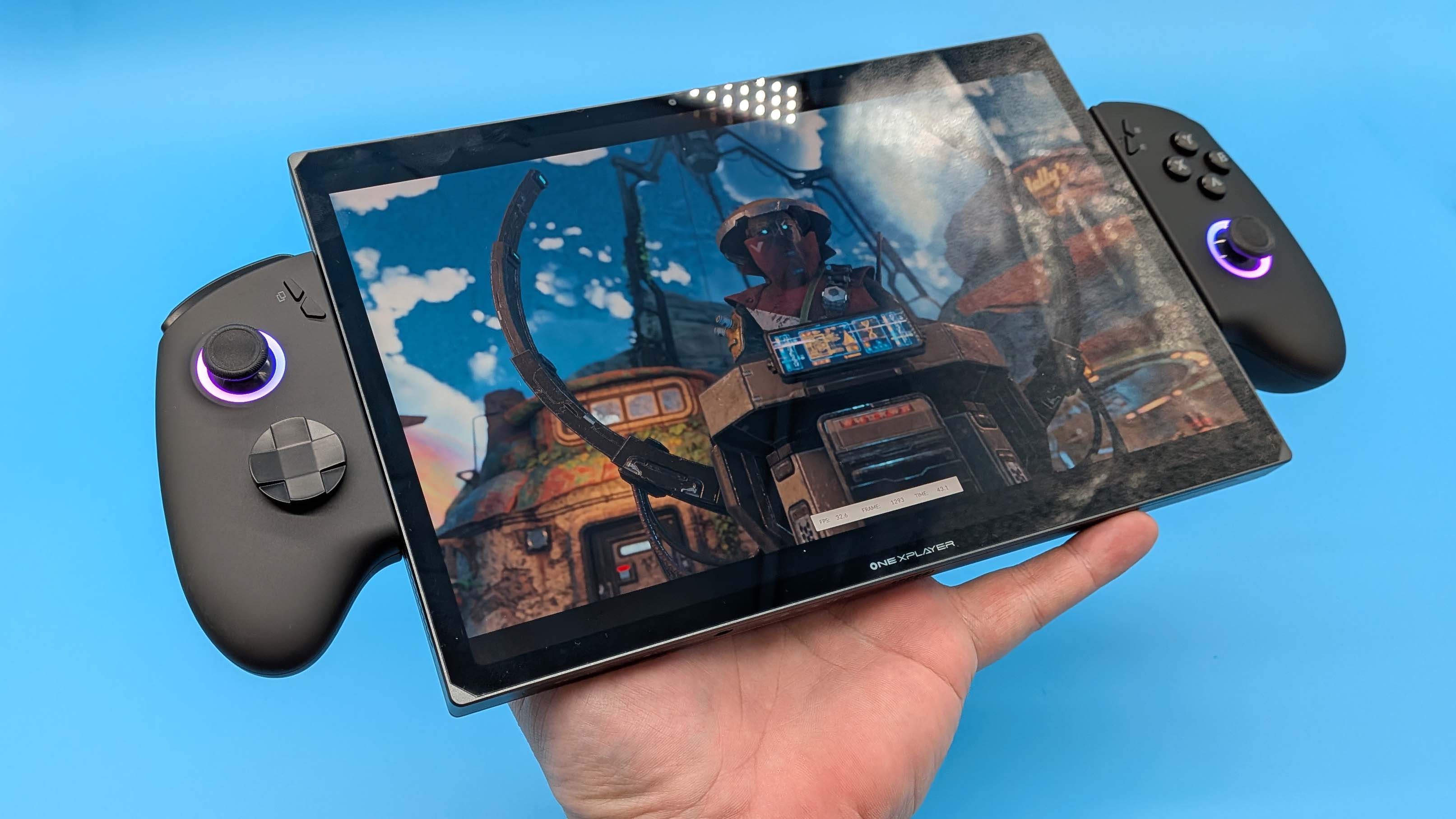ESL's James Lampkin on ESL One Frankfurt and the future of Dota

Photo: Kelly Kline/ESL
James Lampkin is the senior manager of pro gaming at ESL. I spoke to him about ESL One Frankfurt 2015, the implications of Valve's recently-announced Majors series, and why esports doesn't need to court a mainstream audience. Images courtesy of ESL's official Flickr account.
PCG: What were your main learnings from ESL One Frankfurt last year?
JL: When you're dealing with that many people there are security concerns. We had a snowball effect last year where there was a delay in how many people we could get through the door at the start of the day, so the show got delayed. This year we've changed our entire entry system, we're starting the show a little bit earlier, and we think that's going to keep us on schedule for a best-of-five final.
We also wanted to get more people engaged in activities outside of just sitting and watching and maybe having a beer. We've got a lot of side activities like bull riding and archery, and all these cool little things. Sort of Dota related, so that people can watch a game and maybe take a break after a couple of hours and go do something else.
PCG: Esports events are half sporting events, half fan conventions. Is there a split there for you? Do you consider this a sporting event with that other stuff along as a bonus? Or do you embrace the dual nature of the thing?
JL: It's a dual nature for sure. Our goal through the entire planning of Frankfurt has been to make it a 'festival experience'. We want to bring people there to really celebrate the game. Not just through the games themselves on stage, but everything else that is going on in the venue.
Keep up to date with the most important stories and the best deals, as picked by the PC Gamer team.
Something we've learned over the years is that when everybody tries to copy the sports model they forget that for a football match you might only be in the stadium for three, maybe four hours total. For an esports event you might be there for twelve to fourteen hours depending on how the day goes. When you're sitting there for that long people get bored, they want to do something else.
Some percentage of the audience is happy to sit there all day, but we think that when you start getting into these really large events you've got to think about everybody else that wants some variety in the day. They want to get some food, they want to try something cool, maybe they want to try a game that's coming out in the future. That's why you start to see these festival experiences cropping up as a collaboration between the sports side of esports and the celebration of the game itself.
PCG: What are your considerations when you decide which teams get an invite?
JL: The invite system is usually based on how teams are performing in other events. If you're watching a lot of Dota most people have their finger on the pulse of the top three or four teams right now. That makes it very easy for us as organisers to look at the landscape and say that these are the teams that deserve a spot on one of the biggest stages in Dota.
The most important part after that for us is the qualification process. At ESL, one of the core principles we have is that we want to give everybody a chance at all levels. We have open qualifiers that seed into deeper qualifiers and allow anybody to have a chance with their team to make it to an event like this. That's really important to us—having the best teams in the world at these events to create the best games possible.

Photo: Helena Kristiansson/ESL
PCG: With that in mind, the interesting case for ESL One this year is Alliance, who have gone through a roster change and a change of fortune since they qualified. What challenges does that present to you, as a showrunner?
JL: We have some rules about how much a team can change, and usually that rule is that up to two of your players can either be a stand-in or have changed since you qualified. Usually we have a discussion with the team through that process.
PCG: But in terms of the changing fortunes of a given team—is it the case that the qualifiers happened when they happened, things have changed, so you move on with the tournament as it is?
JL: Yeah. We have to be respectful of the Dota landscape itself. It's a pretty unique one, when it comes to team stability and where rosters are going. The nature of being an event organiser in Dota is that you need to be pretty agile. It's difficult to have very firm, concrete policies that will stand the test of time when the landscape is constantly changing.
PCG: With that in mind, then, what do you think of Valve's plan to introduce a fixed transfer system for players?
JL: The Valve approach to this is good overall. It's actually going to incentivise teams to stay together. If you just don't get along with your team, most of the time they break up because there's no cost to break ups. What Valve is introducing here is a set of incentives to say "hey, if you keep your team together and you can work through your problems then there's rewards for that". There are rewards for being stable, for investing your time and your energy into keeping that team alive.
That really helps all organisers overall in terms of storytelling. It helps with the fan experience and what we're trying to do with creating a larger sport out of this game.
PCG: What is your view on the Majors and the impact they'll have on the landscape of competitive Dota 2 over the next year?
JL: It's really hard to say because we don't have the details. There's just very minimal details right now. I think that plan overall will probably evolve. I know a lot of tournament organisers and teams will probably give Valve feedback, so it's really hard to say if it's good or bad without knowing what that plan looks like.
I think overall that Valve's intention with the Major system is a good one. I think the job of tournament organisers is to communicate what the possible effects of that system are.
PCG: We go through this cycle of esports chasing after more mainstream acceptance—being shown on ESPN and stuff. Is that a dead end?
JL: Whenever we have the discussion about whether we need to convert people, the very easy answer to that is no. We don't need to convert people because the audience growth in esports is just massive. Consistently breaking records event to event. I have friends back home who I never knew were even involved in gaming telling me about how they're watching our events, how they're following teams now. It's less interesting for me to try to convince my mum and dad to watch esports than it is to convince some of my younger cousins.
That's what we're really interested in right now. It's definitely a generational question, and one that over the next few years will start to solve itself as those stories of 'hey, this is what esports is' start to become old. Rather than the New York Times writing an article about 'what is esports', maybe they're directly reporting on a player transfer, a huge team deal, or an event final.
PCG: What is the goal for ESL over the next few years?
JL: We want to do more stadium events, simple as that. The question of whether you can fill a stadium with esports fans is one that we've answered, and that other people have answered too. Now the question is how many of those events can you do per year. No-one is shocked that a football stadium puts 40,000 people in it. What's more interesting is that a football stadium can put 40,000 people into it every weekend.
The long-term thinking is: if we can put 15,000 people into an arena in Frankfurt, can we do that five or six times a year in the long run? Can we take it around the world in a couple of different venues per month? These are the questions we're asking ourselves. It's a question of 'how many can you do and what does that structure look like overall', rather than 'do you offer the same product every year'.
Joining in 2011, Chris made his start with PC Gamer turning beautiful trees into magazines, first as a writer and later as deputy editor. Once PCG's reluctant MMO champion , his discovery of Dota 2 in 2012 led him to much darker, stranger places. In 2015, Chris became the editor of PC Gamer Pro, overseeing our online coverage of competitive gaming and esports. He left in 2017, and can be now found making games and recording the Crate & Crowbar podcast.


